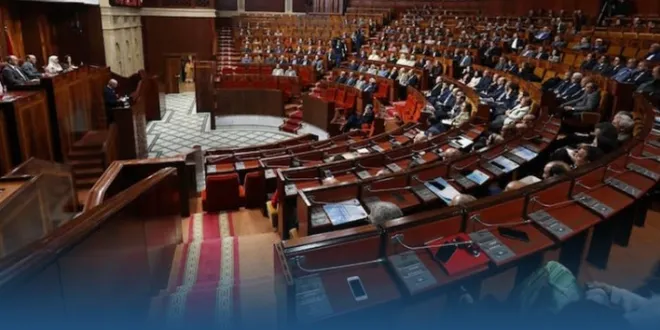On Tuesday evening, December 24, 2024, the Moroccan House of Representatives approved by majority the draft organic law defining the conditions and modalities for exercising the right to strike. This vote came after a lengthy public session that lasted for hours, witnessing heated debates between the government and the opposition over several articles of the law.
This law has sparked widespread controversy since its introduction for discussion. Labor unions view it as restricting the constitutionally guaranteed right to strike, while the government asserts its efforts to reach consensus and protect the right to strike and strikers. The approved version included new amendments presented by the government, including adding Bank Al-Maghrib facilities and air traffic control staff to the category of vital services required to provide a minimum level of service during strikes.
Among the most controversial points in the law are: prohibiting strikes for political purposes, requiring negotiations before striking, banning workplace occupation during strikes, non-entitlement to wages during strike periods, and preventing the announcement of a new strike with the same demands before a year has passed.
According to the legislative process, the law will now be referred to the Constitutional Court to rule on its compliance with the constitution. This step is mandatory by constitutional force for all organic laws before their implementation order is issued. After the Constitutional Court’s approval, the law will be published in the Official Gazette to come into effect.
This law remains a subject of disagreement between supporters and opponents. Some see it as protecting and regulating the right to strike, while others consider it a restriction on this constitutional right. The Constitutional Court’s decision will be crucial in determining the fate of this controversial law.
 فاس نيوز ميديا جريدة الكترونية جهوية تعنى بشؤون و أخبار جهة فاس مكناس – متجددة على مدار الساعة
فاس نيوز ميديا جريدة الكترونية جهوية تعنى بشؤون و أخبار جهة فاس مكناس – متجددة على مدار الساعة













